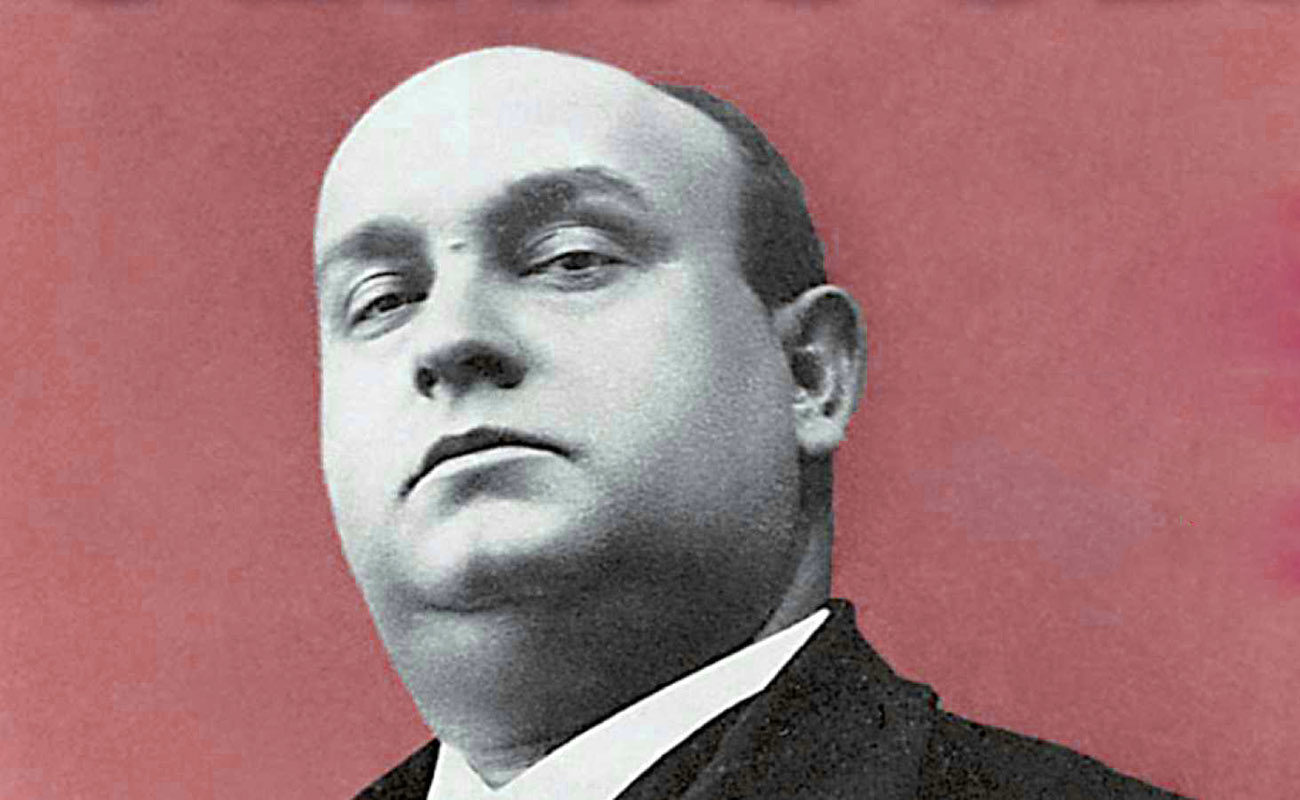Antonio Chacón and Mairena
There wasn’t any sort of relationship between them because Chacón went to his grave without having ever listened to Niño de Mairena. Yet, Mairena attended a performance of Chacón at least once, and it was in Seville’s Prado, in 1927. In fact, Mairena always knew the importance of Chacón, because he wasn’t a fool and he definitely knew a thing

I thought that, since this year is the 90th anniversary of Chacón’s death and the 150th anniversary of his birth, the Festival del Cante Jondo Antonio Mairena could somehow have honored this star of cante jondo who wasn’t held in high esteem by his namesake. It would be a way to set the record straight. In fact, Niño de Mairena always knew the importance of Chacón, because he wasn’t a fool and he definitely knew a thing or two about cante. Yet, the mairenistas still refuse to give any credit to that chubby, bald cantaor from Jerez who was such a crucial piece in the history of good cante.
I remember when that writer from Jerez came to the University of Seville, invited by the mairenistas, and said that “Silverio and Chacón were singers of coplas”, implying that they weren’t even worthy of being called cantaores. He wasn’t criticized for stating such claim, but was rather loudly praised by mairenistas everywhere. Why wasn’t a conference about Chacón and Mairena programmed in the Cultural Week that takes place just before the Festival? I would have given a free lecture, just to set the record straight, not aiming to antagonize anyone but to clarify some things about the relationship between those two great cantaores. There wasn’t any sort of relationship between them because Chacón went to his grave without having ever listened to Niño de Mairena. Yet, Mairena attended a performance of Chacón at least once, and it was in Seville’s Prado, when the master from Jerez was near retirement, in 1927. It’s possible that Mairena never owned a record of Chacón, because one day in 1978 I took to his house Pepe Carrasco’s record collection, Los ases del flamenco, and when he saw Chacón’s record he was very interested in it, although in the end he put it aside and only took two, those of Manuel Torres and Niño Gloria, both of them Gypsies, incidentally.
«The mairenistas still refuse to give any credit to that chubby, bald cantaor from Jerez who was such a crucial piece in the history of good cante. Do you think they’ll allow me talk about those things in Mairena del Alcor?»
I don’t know if you’re aware of how Mairena came to know by heart Chacon’s cantes. If you’re not, let me tell you:
“For a long time, I had to listen to those ‘cantes levantinos’ that she liked so much, to the point that I ended up learning Chacón’s cantes by heart.”
Yes, this is written in Mairena’s confessions. The woman he was referring to was La Macilenta, an old prostitute who had a brothel in Seville’s Alameda district and, according to him, had befriended Chacón in her younger years. Is it fair to scorn Chacón in such way? I say this because when the master died in 1929, Mairena was 20 years old and already performed. So did he never own any of Chacón’s slate records? Didn’t he study the master in those days, but rather had to listen to his cante from an old madam? Well, no, Mairena supposedly learned everything from Gypsy masters. If he ever studied non-Gypsy masters, something he did, he seldom acknowledged it.
Manolito Ordóñez, a record collector from Seville, told me that Antonio often visited his house to tape cantes from his slate record collection and he would ask for songs by El Mochuelo, a non-Gypsy cantaor. “By Mochuelo, Antonio?”, he asked the first time, surprised. “Yes, he’s a good one to study”, answered the master of Alcores. He would also request cantes by Manuel Vega El Carbonerillo (Gypsy) and Fernando el Herrero (non-Gypsy). That is, like a good aficionado, he learned from everyone, but according to his confessions and the lectures he gave through his life, the maestros he learned from were exclusively Gypsy.
A few times he spoke about Chacón, but not often. He never even acknowledged that Don Antonio always spoke highly of the Gypsy masters of the 19th century, such as the Marrurros, Joaquín Lacherna, El Mellizo, Loco Mateo and Curro Dulce. That’s because Mairena, in fact, always considered any performer who wasn’t Gypsy to be an intruder. That’s why he famously called Pepe Marchena a “false idol”.
Do you think they’ll allow me talk about those things in Mairena del Alcor?
Translated by P. Young




